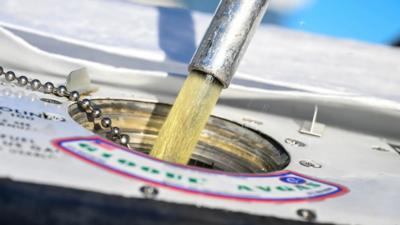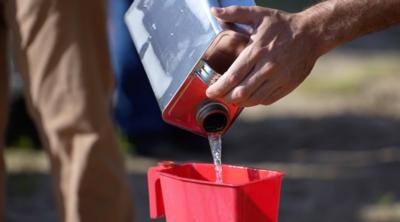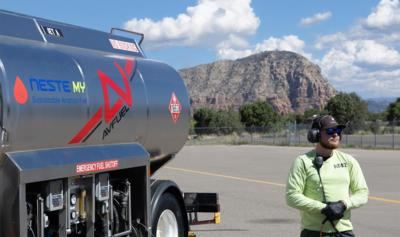Efforts to Replace Leaded Avgas Coming Along Nicely, But The Entrants Still Aren't Quite Ready
Members of the Public-Private EAGLE initiative spoke out following a huddle at AirVenture, updating the aviation community on where the effort to go all-unleaded sits in 2024.

The Eliminate Aviation Gasoline Lead Emissions group acts as a bridge between an assortment of General Aviation associations, industry stakeholders, and regulators, to try and find the ideal path to eliminate leaded avgas from the aerospace ecosystem - no small feat when a century of engineering rests upon its foundation. But the last year has been quite promising, with approvals and fieldings of new unleaded avgas across the country. What surprised some, however, was EAGLE's recommendation to ensure that 100LL supplies remain in order to ensure the safety of existing aircraft. A hodgepodge unleaded rollout would be enough of a headache on its own, but the work would become a nightmare if the endeavor takes lives along the way. The group pointed out that the recent 2024 FAA Reauthorization Act okayed the continued supply of 100LL, giving the industry more time have a careful, effective, and most importantly safe unleaded rollout.

“The key to a safe and smart transition to unleaded fuel is the continued access to 100LL,” said Curt Castanga, president and CEO of the National Air Transportation Association and EAGLE co-chair.
“We need to work as a community to maintain 100LL and not ban it prematurely,” added AOPA President and CEO Mark Baker. “We don’t want to jeopardize safety.”
EAGLE members went over the current crop of unleaded avgas today, mostly focusing on the standouts: G100UL from General Aviation Modifications, Inc., and 100R from Swift Fuels. GAMI was first past the pole to get their STC approved for the piston engine GA fleet in 2022, while Swift is hoping to get its own approval later this year. Some progress on LyondellBasell and VP Racing's UL100E has been made, too. They believe they can get fleetwide authorization in time, too.
“It’s important to note that EAGLE is brand-agnostic,” Wes Mooty, acting executive director of the FAA’s Aircraft Certification Service and EAGLE co-chair, told the audience. “Its task is ensuring that whatever fuels come to market are safe for your use. Everyone will have to make their own decisions about what comes to market, and we are relying on industry and users to help.”

Additional topics for EAGLE surrounded the hunt to achieve an ASTM specification on the way to approval. While it's not absolutely vital to the mission in its simplest terms, an ASTM approval would help lubricate the rollout and get unleaded avgas in more tanks around the world. That will be vital for use, in the end: More users lowers cost, which empowers a virtuous cycle that ultimately replaces leaded avgas throughout the industry entirely.
“While an ASTM International specification is not required for a fuel to be certified, its absence may make it more challenging for the market to accept,” Castagna added. “OEMs, airports, FBOs, and other businesses across the entire aviation supply chain have historically relied on ASTM for the testing of a broad range of materials compatibility aspects, and to establish quality control standards for distribution. Stakeholders also consider confidence and demand in making business decisions.”
 Aero-News: Quote of the Day (10.16.25)
Aero-News: Quote of the Day (10.16.25) Airborne 10.15.25: Phantom 3500 Confounds, Citation CJ3 Gen2 TC, True Blue Power
Airborne 10.15.25: Phantom 3500 Confounds, Citation CJ3 Gen2 TC, True Blue Power ANN's Daily Aero-Term (10.16.25): Enhanced Flight Vision System (EFVS)
ANN's Daily Aero-Term (10.16.25): Enhanced Flight Vision System (EFVS) True Blue Power and Mid-Continent Instruments and Avionics Power NBAA25 Coverage
True Blue Power and Mid-Continent Instruments and Avionics Power NBAA25 Coverage NTSB Final Report: Bellanca 17-30A
NTSB Final Report: Bellanca 17-30A





